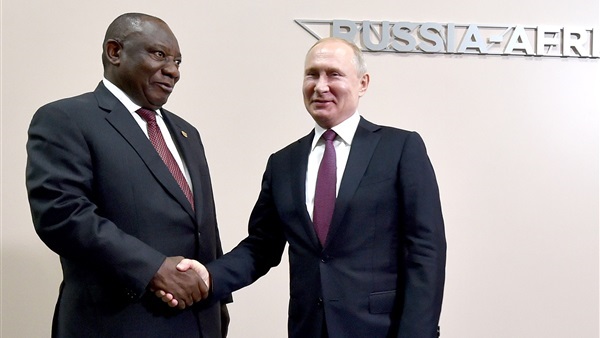Russia Emerges Victorious in Recent African Coups: A Blow to the West and Growing Influence

Russia stands as the biggest winner amid the recent coups
witnessed in the African continent, particularly in Niger and Gabon. These
coups resulted in the fall of regimes aligned with the West, especially France,
and concurrently led to the ascent of leaders closer to Moscow. This shift
opens the door to Russian influence in the region.
A Blow to the West
Western newspapers have described recent events in the
Dark Continent as a blow to Western interests in Africa. They emphasize
Russia's involvement, represented by the Wagner Group, considering Moscow to
have scored a new goal against the West. The confrontation between the two
sides extends beyond battlefields in Ukraine, expanding each day in the African
continent.
Strategic expert Major General Jamal Taha states that
recent developments in Africa are an extension of the Russian-Ukrainian war, a
battleground for the conflict between the East and West. Russia, supported by
China, Iran, and North Korea, attempts to overthrow the current international
system. Meanwhile, the West, led by the United States and Western alliance
countries, fiercely defends its survival. Thus, the war transforms into a
cosmic confrontation, encompassing various fields, notably the South China Sea
and Africa. In the latter, Russia expands into French-speaking colonial regions
at the expense of France, a punitive measure for its strict stance on the
Ukrainian war.
Contact with Wagner Group
Strategic thinker Alexander Dugin, whose dreams are
turning into policies implemented by the Russian state, notes that the contact
lines between Russia and the West are no longer confined to Russia's vital
sphere but extend to Africa. Russia's interest in the continent lies in its raw
materials and vast consumer markets.
The strategic expert adds that the leaders of the Niger
coup did not initially have a predisposition towards Russia. Evidence of this
is their response to diplomatic dialogue conducted by Washington through Deputy
Secretary of State Victoria Nuland. However, their concerns about potential
French and ECOWAS intervention prompted them to establish communication with
Wagner. General Salou Moussa, the leader of the transitional phase, visited Mali,
meeting Wagner's militia leader to seek support. The Russian Foreign Ministry
expressed support for the new regime, warning that any military intervention
could lead to a long-term confrontation, destabilizing the Sahel and desert
regions.
Taha emphasizes that the ruling elites in the Sahel
countries focused on accumulating wealth, neglecting reforms. This negligence
resulted in the emergence of a nationalist spirit resistant to Western
colonization among military figures. Consequently, military regimes formed in
the Central African Republic, Mali, Burkina Faso, and, recently, Niger and
Gabon. Given these regimes' inability to confront Arab military bases on their
soil, they turned towards Russia, transforming the region into an open field
for Wagner's forces.
Exclusion of France from Africa
The coups in Niger and Gabon have undermined the last
strongholds of French influence in the continent. They allowed protesters to
raise Russian flags, affirming the existence of a popular trend rejecting the
West and leaning towards Moscow. The truth is that Western plunder policies
encouraged Russia and China to try to fill the void. They sought to contain
military regimes, representing the only national institution capable of shaking
off colonial control and change.
Russia has achieved remarkable success in Central Africa,
Chad, Mali, Guinea-Bissau, Libya, Sudan, Burkina Faso, and Mauritania,
especially in the extraction of gold, minerals, oil, gas, and diamonds. There
has also been an increase in agricultural exports, fertilizers, and the
promotion of Russian products in markets with 1.3 billion consumers,
contributing to economies worth three trillion dollars. In return for these
benefits, Russia provides military support to secure ruling regimes and ensure
their stability in the face of rebellious movements.
Eugene Prigozhin, the leader of Wagner before his
elimination, participated in the Russian-African Summit in St. Petersburg. He
met African leaders, conveying: "The events in Niger were part of the
Russian nation's war against colonizers."





